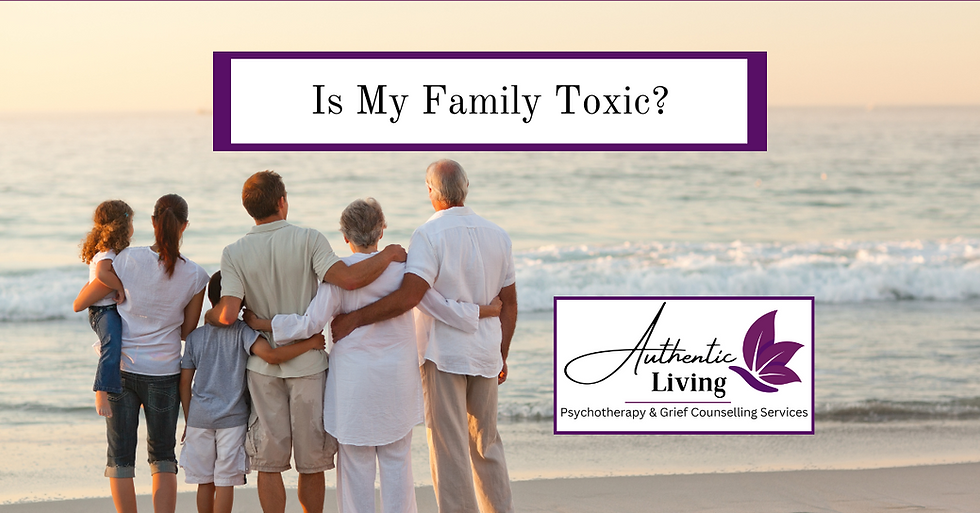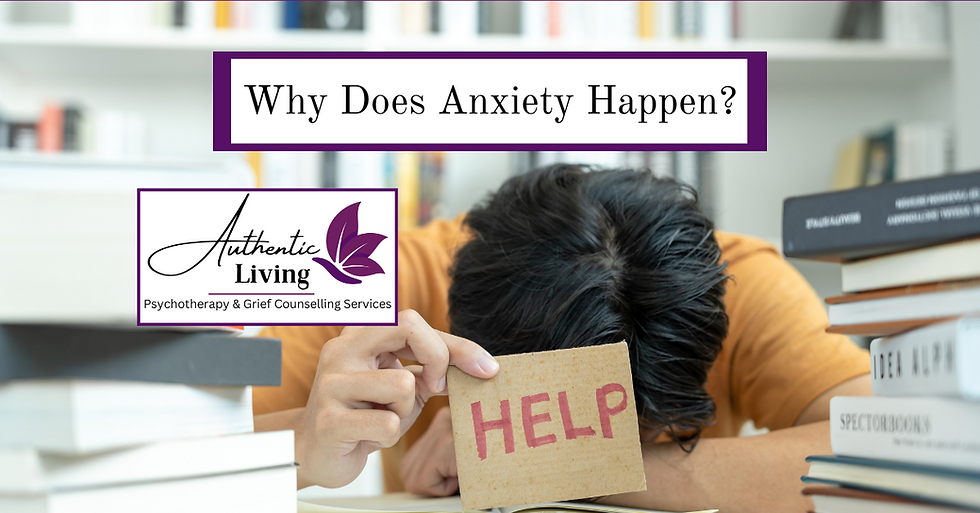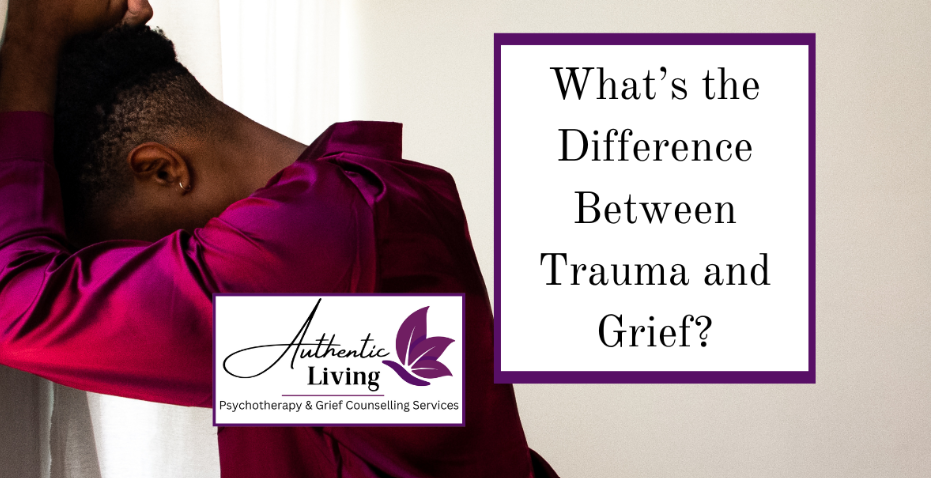Is My Family Toxic?
- Aug 11, 2025
- 3 min read
Family relationships are supposed to give us a sense of safety, love, and belonging. But for many people, family is also where they feel the most hurt, confused, or drained. If you’ve ever asked yourself, “Is my family toxic?” you’re not alone. The answer isn’t always simple, but learning the signs can help you understand what’s really going on and what you can do next.

What Does “Toxic” Mean in a Family?
A toxic family is one where unhealthy patterns are repeated over and over, leaving you feeling unsafe, unloved, or constantly on edge. This does not mean your family is all bad or that every moment is negative. It means the harmful patterns often outweigh the good, and they affect your mental and emotional well-being.
Common signs of a toxic family include:
Constant criticism that attacks your worth, not just your actions
Lack of boundaries or respect for your privacy
Control and manipulation instead of healthy communication
Gaslighting that makes you question your reality or feelings
Unequal treatment between family members
Emotional neglect such as ignoring or dismissing your needs
Abusive Behaviour vs. Normal Interpersonal Conflict
It is important to understand the difference between abuse and the kind of disagreements all families have.
Normal interpersonal conflict happens when people have different opinions, needs, or moods. Even loving families argue. Signs of normal conflict include:
Both sides can speak and be heard
Disagreements might get heated, but no one is intentionally trying to harm the other
The conflict can be resolved, and the relationship usually feels okay again afterwards
Apologies and compromise happen on both sides
Abusive behaviour is not just a disagreement. It is a pattern of harm that can be emotional, verbal, physical, financial, or psychological. Signs include:
One person holds most of the power and control
The hurt is ongoing, not just occasional
Intimidation, fear, or threats are present
Your feelings and experiences are dismissed or twisted against you
There is no genuine accountability from the person causing harm
The key difference is intent and impact. Conflict might hurt in the moment, but abuse slowly erodes your sense of self over time.
The Impact of a Toxic Family on Mental Health
Growing up or living in a toxic family can leave lasting effects, such as:
Low self-esteem
Anxiety or depression
Difficulty trusting others
People-pleasing or over-apologizing
Trouble setting boundaries in other relationships
Many people also experience guilt for wanting distance, even when the relationship is harming them.
What You Can Do If You Think Your Family is Toxic
Name the patterns by writing down what happens so you can see if it is conflict or abuse
Set boundaries by deciding what you will and will not allow
Seek outside support from friends, therapists, or support groups for perspective and validation
Decide how much contact is healthy for your emotional well-being
Focus on your own healing since you cannot change your family, but you can change how you respond to them
You Do Not Have to Figure This Out Alone

If you are unsure whether your family is toxic or just going through normal conflict, talking to a therapist can give you clarity and tools to protect your mental health. At Authentic Living London, we provide a safe and non-judgmental space where you can unpack your experiences and explore the next steps that feel right for you.
Whether you need help setting boundaries, coping with family trauma, or healing from long-term abuse, our team is here to walk alongside you.
Book a session today and start building relationships with your family or with yourself that are based on respect, safety, and care.










Comments